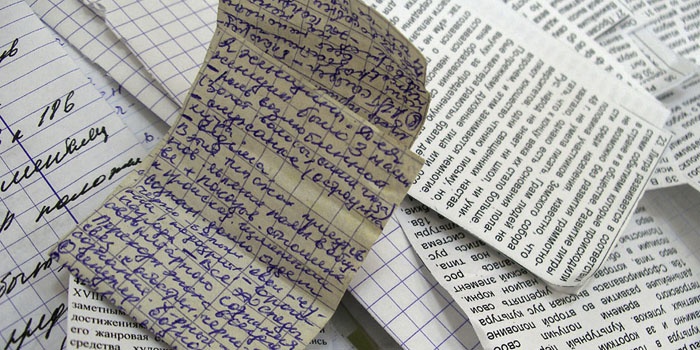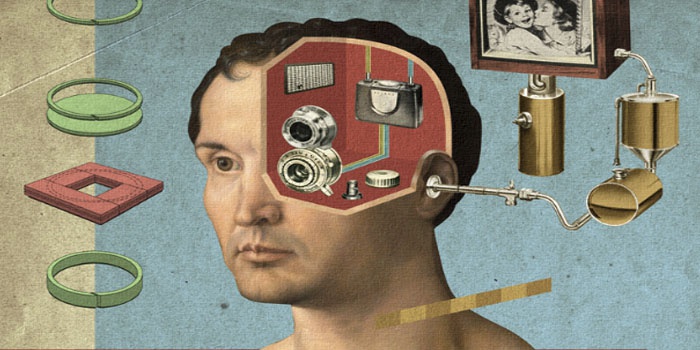Reader's Choice
Popular articles
Almost every person in his life faced such a task as preparing for exams or tests. Sometimes it is necessary to memorize huge amounts of information, moreover, to do it in a relatively short time. The task seems to many unbearable, but it is completely solvable, if you know how to memorize and assimilate information.
First of all, it is necessary to take into account the individual characteristics of people, namely, which memory prevails in a single person: mechanical, kinesthetic, visual, and auditory. Based on this, you can think of specific ways to learn a large amount of information. Also, the schedule for studying a new material should be built on the basis of the time of day a person has a peak activity. Simply put, larks learn new information better in the morning, owls in the evening.
Those who predominantly have auditory memory, it is advisable to dictate the material to electronic media and listen. For those who better remember the information visually, it is better to read several times. Kinesthetics and mechanics - write the most basic on a sheet of paper. But whatever memory a person has, it is best to break the material into logical blocks, that is, to make a plan of what was heard or read. Indeed, it is difficult to remember the whole amount of information, but the main thing from it, on the basis of which you can then think out the details, is quite achievable.
Also very useful for better memorization is the association method or the keyword method. You can connect the imagination and imagination, laying out the information on images or symbols that are meaningful and easily remembered for a particular person. For example, you can imagine an empty room, as you study the information filled with objects.
After a person has read or listened to the material several times, and also memorized keywords, it is worth retelling the information in your own words, relying solely on semantic blocks. The main thing is not to allow purely mechanical memorization, which does not involve logic. Information obtained in this way is quickly erased from memory. In this regard, the brain can be compared with a computer, in which the RAM is much smaller in volume than the hard disk. Similarly, it happens in our brain. The main thing is that a particular person considers it necessary and important, is deposited in the long-term memory. After all, he gave himself the installation on the importance of this information. A short-term memory is gradually cleared as new information becomes available.
Thus, we should not forget another important point in the process of memorization - awareness of the importance of the goal. As soon as a person gives himself an attitude to this, logic turns on, which helps to isolate the most important things from what he read. In this case, it is not a mechanical memorization, but a memorization. Information obtained in this way is stored in memory much longer. From all this we can conclude that the study of large amounts of information is nothing complicated. The main thing is to understand the principle of proper memorization and strictly follow it.
A good memory is a matter of pride. In the modern age, we daily perceive tons of information. But you can not remember everything. Needless to say, recently people have become accustomed to putting everything into telephone memos. But still the most powerful and reliable hard drive that cannot be cracked is our brain. However, to memorize information, you need a good memory and following some tricks. However, first things first.
How to quickly memorize information? It is impossible to find the answer to this question without understanding their abilities, given by nature. The thing is that almost all of us have developed several types of memory. But one of them is the strongest. So, here are all its kinds:
The latter type of memory is considered the least practical, because taste and smell rarely act as leading analyzers. However, all of these types are connected in one type of memory - figurative. Image, sound, sensation, smell and taste - all this contributes to the creation in our imagination of a certain picture.
There is also a verbal-logical memory, motor (motor), emotional, voluntary, involuntary, short-term, long-term and operational. But memorization favors, naturally, the first of this list.
![]()
If you talk about how to quickly memorize information, then this method is worth noting attention in the first place. Since it is the most effective.
Memorization is the process of finding relationships. Or their creation in an array of images. If you want to put something in memory, you need to find or create a new visual link. Information, especially abstract (ideas, thoughts), can not be memorized.
Here is a simple example. Word sleeve, which translates as “sleeve” from English, you can try to hammer into your head for an hour, repeating it to nausea. But why, if you really remember it in 5 seconds? It's simple! It is enough to imagine the sleeve of the jacket, clogged to the top by plums. Strange? May be. But now even I don’t have to remember what the word means sleeve. And all thanks to the creation of a connection between him and the image.
Even in teaching this method is used. Recall at least the lessons of mathematics at school. Yes, any person who finished it 10, 20 and 30 years ago, when asked what a bisector is, will answer - this is a ray dividing one angle into two. And why? Because the bisector is a rat that runs in corners and halves the angle. All teachers used this simple rhyme to make life easier for students.

This method is similar to the previous one. How to quickly memorize information? Make associations! These are groups of images that encode information. They always have a base and superimposed elements.
Associations do not even need to search, because they surround us. Phone numbers are birthdays to remember. In memorable dates - house numbers, addresses of friends. And, of course, the words - the main assistant of each of us.
How to quickly memorize spectral classes of stars? They are denoted by letters, and not in alphabetical order - O, B, A, F, G, K, M. If you think a little, you can come up with a fun association by writing a letter to each letter and combining them into a meaningful sentence: “One Blond American Dates Chewed Like Carrots”. And according to this scheme, you can remember almost everything - starting with dates, ending with formulas.
Most often, schoolchildren and students are interested in answering the question of how to memorize information faster. Those who need to learn something, and preferably quickly. The above methods should be used, but they will be in this case auxiliary.
The most important thing is to set a certain mode. The best time for learning is from 8:00 to 11:00 and from 20:00 to 23:00. However, it all depends on how much a person lays down and gets up. After analyzing your activity, it is not so difficult to find the best time for yourself.
Having chosen the time, you need to turn off the Internet and all electronic gadgets, ensure yourself silence or non-distracting background music, and then concentrate, removing from your eyes anything that might seem interesting to study. For many, the problem is this. But you can concentrate if you break down the digestible material into several parts and learn a little.
For example, a student needs to prepare for the exam, which will be in 5 days, 40 tickets. So, he will need to do 10 pieces every day. In the morning five, and in the evening the same, and during the day you can relax. On the fifth day, repeat. It will help. The main thing is to set a goal for yourself and follow a clear plan.

How to quickly remember the "big" information? The question posed in this way concerns all students on the eve of the exam or test. The amount of information (besides not the most interesting) is great, but there is no time. What to do? The answer is simple. Need to get carried away.
After all, everyone noticed how imperceptibly time flies while walking, traveling, entertainment! And then we remember everything in amazing details. All because it was interesting. Preparing for tomorrow's exam, you need to get carried away by the subject. “Yes, why do I need him!”, “I'll forget everything in a day!”, “There is nothing more boring in the world!” - all these excuses are familiar to students. But it is necessary to learn, because you have to inspire yourself that the subject and information are of unprecedented interest. We must try to find something catchy in it, or maybe useful. Or inspire yourself that today nothing of the classes, except for the teachings of the subject, is not available. And be sure to find the motivation. You can promise yourself to arrange a holiday after successfully passing the exam. In anticipation of the information is remembered really better.

There are people who are not interested in how to quickly remember a large amount of information. It is important for them that certain data be permanently stored on their internal “hard disk”.
To do this, you must use the combined technique of fast and detailed reading. So, first - a detailed introduction to the material. Someone reads 2-3 pages to understand what he is dealing with. Others snatch text from different parts of a book (abstract or other source of information). However, this is an individual question. The meaning of superficial reading is not to memorize the text, but to become acquainted with it.
But then comes the time of the detailed method. It implies a slow, thoughtful reading of all available information and its parallel analysis. You can highlight difficult words or interesting phrases, reread what you could not understand the first time.
In parallel, it is desirable to take notes and even sketches. And talk to yourself. Speaking out loud is very useful as it involves auditory, verbal and visual memory. Moreover, attentiveness is activated more strongly, because reading aloud is impossible without concentration.

How to learn to quickly remember information? One simple rule has to be learned. Need to scream! Proved - the information quickly fit into the brain, if a person shouts it.
Emotions also help. Especially expression. Gestures, phrases, facial expressions - and everything that can express it. You can even play a scene in front of a mirror.
And yet, you can not sit still. If you learn something, turning circles around the room, you will be able to activate the brain and, accordingly, its ability to memorize information.
By the way, if there is an opportunity to change the situation, you need to use it. And it is desirable to exchange a room for nature. Fresh air and the absence of concrete four walls will contribute to more active memorization.
This is another good way to quickly remember information and transfer it from temporary to long-term memory.
At the very beginning it was about images and connections. With their help, you really can quickly remember information. But! If a person does not use these connections, they will simply collapse with time. That is the reason why we forget what we previously remembered. And the weaker, slurred connection was - the faster it will collapse.
Therefore it is necessary to use this method. Repeat the connection, update the visual images and make them more vivid. And here is the conclusion: memorization is not a constant craving and browsing of external sources, but regular retrieval of images ever created from memory. And it is better to spend a little time in order to come up with them, and then remember the information for life, than to memorize it for hours, and forget in a day.

There are people for whom quickly remember the necessary information - just spit. And all because they constantly follow the above recommendations (and some more that come up with themselves). These people train their memory and improve the ability given by nature. And the question of how to quickly remember the information before the exam or what they saw briefly is not relevant for them. And this is the main secret.
It is necessary to develop the habit of daily memorizing or learning something. And with the help of the above methods. They are effective, proven by many. In addition, they contribute to the development of thinking and verbal logical memory.
4 3 381 0
Most of us have superpowers for memorizing information, which were shown by Patrick Jane from the television series Mentalist or Sherlock Holmes from the show of the same name, only dream about it. After all, many and the shopping list of five units have time to forget before they reach the store. Nevertheless, the question of how to quickly learn the material, and often impressive in volume, sooner or later becomes almost in front of each of us. When you need to pass an exam, prepare a speech or explain to your boss, where you disappeared on Monday. How to do it? You will find many effective tricks in this article.
Whatever methods of memorization a person chooses, there are universal conditions that will allow to increase the efficiency of the process. For example:

This approach has been used by hundreds of generations of students and students who are interested in how best to remember what they read for the exam. It consists in the endless repetition of the same material, until it nevertheless remains in memory. This method makes sense.
Repetition is really the mother of learning. But usually the information squeezed into the memory in this way disappears from it immediately after it is no longer necessary.
In addition, this approach takes an enormous amount of time and energy.
To memorize information happened more effectively, you can voice it. There are a couple of tricks here:

Very effective way, especially if you force someone to act as a listener. When we stand in front of someone, we try to pry less, we pick up words, thus stimulating memory.
If you are unable to recruit someone into the audience, you can create such an effect using your own image in the mirror.
Or simply exploit the hopeless situation of a home hamster. The main thing is the public effect.
Tedious lecturers who insist that students record their speeches are actually right.
When information is not only perceived by the ear, but is also rewritten, it is remembered much better. Since it also connects visual and even motor memory.
If the text itself is not structured, it is very important to break it apart at least mentally, while learning.

If the material to be memorized is large, it is recommended to divide it into parts, and to learn each of them in a new setting.
Those who want to know how to remember information better will be surprised at how this advice helps.
When you try to remember something important, sometimes it is enough to reproduce in memory the atmosphere in which this knowledge was obtained.
For example: the situation in the room, people who were nearby, smells.
Many of us find it difficult to remember the lyrics, but the songs, it is worth hearing them a couple of times, are immediately remembered and repeatedly sung. You can go to the trick, and, learning the text, not to read it out loud, but to sing, optimally - using your favorite melody.
Many people like to memorize the material, do not sit at the table, and stay in motion - for example, walking around the room in circles.
This advice is applicable not only for love poems. You can find an association with anything if you use various signs - for example, colors, shapes, sizes, similar sounds. It is possible and necessary to invent abbreviations that are easy to remember, and small but interesting stories about anything, even engines or augers.
Hello, my favorite readers.
Have you ever thought how to quickly remember a large amount of information? How not to forget everything in the morning? How to postpone all knowledge gained in such an intensive way into long-term memory?
All these questions concern every person who has ever had to memorize tons of materials for an exam, presentation, or just to improve their own knowledge.
More than once I have come across the fact that many, not looking up from textbooks, are sitting day and night trying to remember as much as possible. Does it make sense? Maybe they are doing something wrong? Maybe there is another way?
Today I want to discuss with you how you can quickly and efficiently memorize new material.
No matter how important and large in a short time, there will always be at least 50% of water in it. The introductory words and subordinate sentences, examples and verbalizations of the author - this is something superfluous that can be cut off from the text with peace of mind.
While reading mentally highlight the main ideas and remember exactly them. Form the so-called skeleton, on which in the future you will simply impose your thoughts. This method alone will help you reduce the time to study the material several times.
Yes exactly. The more times you read the text, the more you begin to dwell on all sorts of unnecessary things and trifles. The more you start to be distracted from the most important. Our brain is designed in such a way that it’s better to read it very carefully once, highlighting the main ideas, and then retell it than to read the same thing ten times in trying to remember. This will give much more effect in a short time.
The brain is able, without speaking, to grasp the meaning of what the eyes see. So try not to stop at every word while reading, but glide over the eyes. Yes, it will be difficult, but it will significantly speed up the process.
If you regularly work with a large amount of information that you need to remember or you just need to develop your memory to the maximum, use tips of Stanislav Matveyev - record holder for memorization. This man proved that everyone is capable of more than he thinks.
Walk around the house. Lay out things in the closet. Knit or cross stitch. Get up and go for a walk in the park. Do any physical work when you are already trying to retell what you have read. Scientists have repeatedly noted that physical mobility increases performance and brain productivity. So use what you already have.
No matter how much you want for the day, you are unlikely to succeed. Our brain is simply not capable of mastering tons of material without preparation. Therefore, I advise you to divide everything into parts. Mastered one part - relax, drink tea, go outside for 15 minutes. Generally, reboot your brain.
Even if you need to learn as much material as possible per day - plan your vacation. From the morning plan, for example, at what time you will learn, and at what time - relax. Plan a time for lunch and rest. Then the probability of success you will be much higher than if you just get up in the morning and will teach until the night.
To significantly reduce the time for reading - develop the skill read the entire line. So, you do not have to run around the line, you will see everything at once. Of course, you will not learn this in a short time, but if you constantly have to work with large amounts of information, this skill becomes extremely necessary.
Already, you can start to engage in, to develop these abilities. A good helper in this can be online brainapps service . There you can register and use good equipment.
Can also be purchased premium account and take advantage of even greater opportunities (for example, take a professional course in speed reading , get regular workouts tailored to your level, access all the simulator games presented on the site, etc. ).
Give these classes 5-10 minutes a day, and after a couple of weeks you will significantly increase the speed of reading one page of text. I experienced it myself.
In order not to lose what you have recently learned from the shelves of your short-term memory, repeat the learned material every 2-3 hours. This will refresh your knowledge and help move information into the intermediate memory.
I hope that among these tips you will find something that will help you not only to learn correctly, but also to plan your training correctly. If you have to learn a lot of material, try these methods. And personally, I, and many of my students more than once tried them on themselves.
And if you want to get even more information about any aspects of the English language - subscribe to the newsletter of my blog. You will find the most relevant and correct information, a lot of interesting and useful.
The modern world with a huge amount of constantly updated information makes high demands on human memory. People who are trying to succeed have a question: how to remember a lot of information in a short time? Over this problem, the best minds of mankind who have found a way out for such people have “fought” for a single year. According to their opinion, the use of special techniques can increase the amount of memory.
Scientists have been trying for a long time to find the answer to the question of how much information an ordinary person can remember. However, no solution has yet been found that satisfies all physiologists. It was assumed that the memory of a person is capable of storing information of ten million bits. But soon, scientists abandoned this theory due to the fact that this volume is very small and does not reflect the real state. The human brain contains not only the data that he is forced to memorize, but also those that accompany his existence - the nicknames of pets, features of faces of relatives, etc.
According to the American researcher Cooper, each brain neuron is capable of storing up to one hundred thousand pieces of information. Given their total number, a person’s memory holds information of 10 to 17 degrees of bits. This figure, according to a number of physiologists, is reliable. However, some scientists argue that human memory is a more capacious concept, and it can contain information 10 to 23 degrees of bits. Based on these data, it is clear that people have not yet learned how to use the most complex mechanism granted to him by nature.
In everyday life, there are individual differences in mental processes. One of these processes is the storage of information. The peculiarities of the process of memorization characterize a personality, becoming its properties, imprint on the activity and behavior of a person. Depending on which analyzer prevails in the memory, it is customary to distinguish four of its types:
The auditory (sound or auditory) type is characterized by a high degree of memorization and reproduction of various sounds: music, spoken words. It is important when memorizing voiced information. It acquires special significance in certain periods of life. Auditory memory ensures good performance of pupils and students. It is necessary for successful professional activity of composers, musicians, linguists.
Visual memory is the ability to perceive, preserve and reproduce visual images. According to psychologists, people with a developed visual type have a well-developed imagination. They are able to "see" the images, even after they have disappeared from view. This type of memory is of particular importance for designers, engineers, artists, designers.
Motor (motor) memory is characterized by the ability to memorize and reproduce movements. People possessing it are able to keep in memory not only motor representations, but also their characteristics: amplitude, speed, tempo, rhythm, sequence. From the level of its development depends on the success of the formation of motor skills of labor, gaming, sports activities.
Mixed type is characterized by the absence of the predominance of any one memory. Its peculiarity is that mixed memory ensures equally good memorization of material when using different analyzers. People who have it, use several types of memory: visual-motor, visual-auditory, motor-auditory.
There are other types of memory based on the activities of individual analyzers that are not essential in human life. Their capabilities are limited and are reduced to the satisfaction of the biological needs of the organism. These types of memory include: olfactory, tactile and gustatory. To find out what method of memorization prevails in you, use the psychological method of "Determining the type of memory."
For its implementation, you will need an assistant who must read out several rows of words. Each of these corresponds to a specific type of memory. After reading the group of words out loud by the presenter, the subject must write them down from memory in the allotted time. The obtained data should be checked with rows of words and identify how many are named correctly. At the end of the coefficient calculation using a special formula, the conclusion is made about the prevailing type of memory.

What is the best way to memorize information? Cramming takes a lot of time and is not always effective. The favorite method of student "smuggling" - cheat sheets, helps in solving this issue. According to physiologists, the use of cheat sheets activates the activity of several analyzers, as a result several types of memory take part in the memorization process - visual and motor. This approach provides quick memorization. The peculiarity of the cheat sheets is the way of saving information.
A large amount of data will not be able to fit on a small piece of paper, so the answer to the ticket question is recorded briefly in the form of diagrams. They reflect key moments or individual phrases that reflect the essence of which logical chains are created by consciously processing information, which ensures consistent memorization of the text. This method is successfully used not only by students, but also by people operating with large amounts of data - managers, teachers.
According to physiologists, the auditory type of memory is a powerful memorization tool. Psychologists believe that auditory memory develops more easily than visual and motor. Using this tool increases your memorization capabilities. To use the auditory memory, it is recommended not only to write, but also to read the same cheat sheets. Repetition of information out loud before the exam increases the chances of a favorable outcome of the case.
The main method of using auditory memory is recording information on a voice recorder and listening to it. For example, you can record lectures read by a teacher, or read material on a dictaphone yourself. Regular listening to information provides strong memorization. At one time there was a theory that if you listen to information in a dream, it is well remembered, but scientists questioned the use of this method.

Visual memory accounts for most of the information we perceive. In educational institutions, the main emphasis in the presentation of educational material is on visual perception, so most of the data is located on the blackboard. To increase the capacity of this type of memory, several techniques of visual memorization are used:
Less commonly, only motor memory is used for memorization. However, connecting to the processes responsible for storing information of one’s own body ensures strong memorization. Methods that activate motor memory are: writing cheat sheets, practical implementation of an action that should be remembered (for example, reproduction of a dance element). Such techniques are actively used in childhood and among people whose activity is connected with the formation of practical skills - pilots, surgeons, builders, cooks, athletes, dancers.

The question of how to learn to memorize information worries people and if necessary in a short time to master a foreign language. The book in this case carries only reference information. Physiologists recommend increasing the amount of audiovisual information. Watch movies in the selected language, accompanied by Russian subtitles, listen to the songs, find a companion who speaks the language, and regularly communicate with him. Excellent helpers will be a computer and social network. If in your city there is a club where foreigners gather, visit it and practice in pronunciation.
There are a lot of computer techniques that involve working out the pronunciation, listening to words, accompanied by translation. One of the popular techniques used in the study of languages is the technique of “Mental Repetitions”. Its essence lies in the periodic mental repetition of information. It is important to follow the exercise schedule:
The number of repetitions, the intervals between them are regulated at their own discretion, taking into account individual abilities. Allowed to increase the number of repetitions and lengthening the intervals between them. Be sure that the breaks are not long, otherwise information that is not fixed in time may not be saved in memory as a result.
| Related articles: | |
|
How to remember a large amount of information: quickly and for long
Almost every person in his life faced such a task ... Creamy champignon soup: classic and originality
No ideas on cooking for lunch? In this case, you can ... Cooking Boiled Fish
11.3. Letting fish. Dishes of boiled fish are let in ... | |